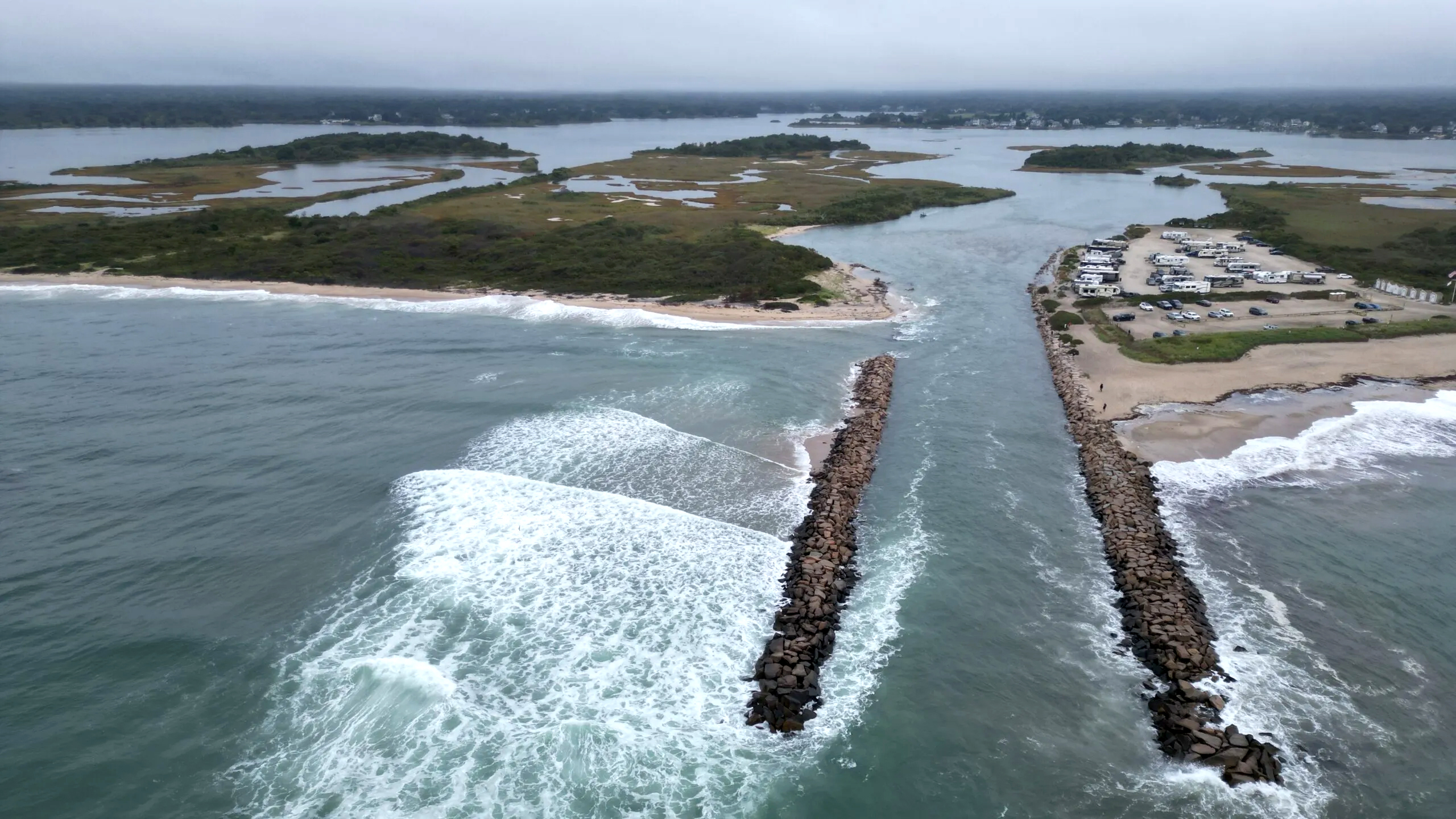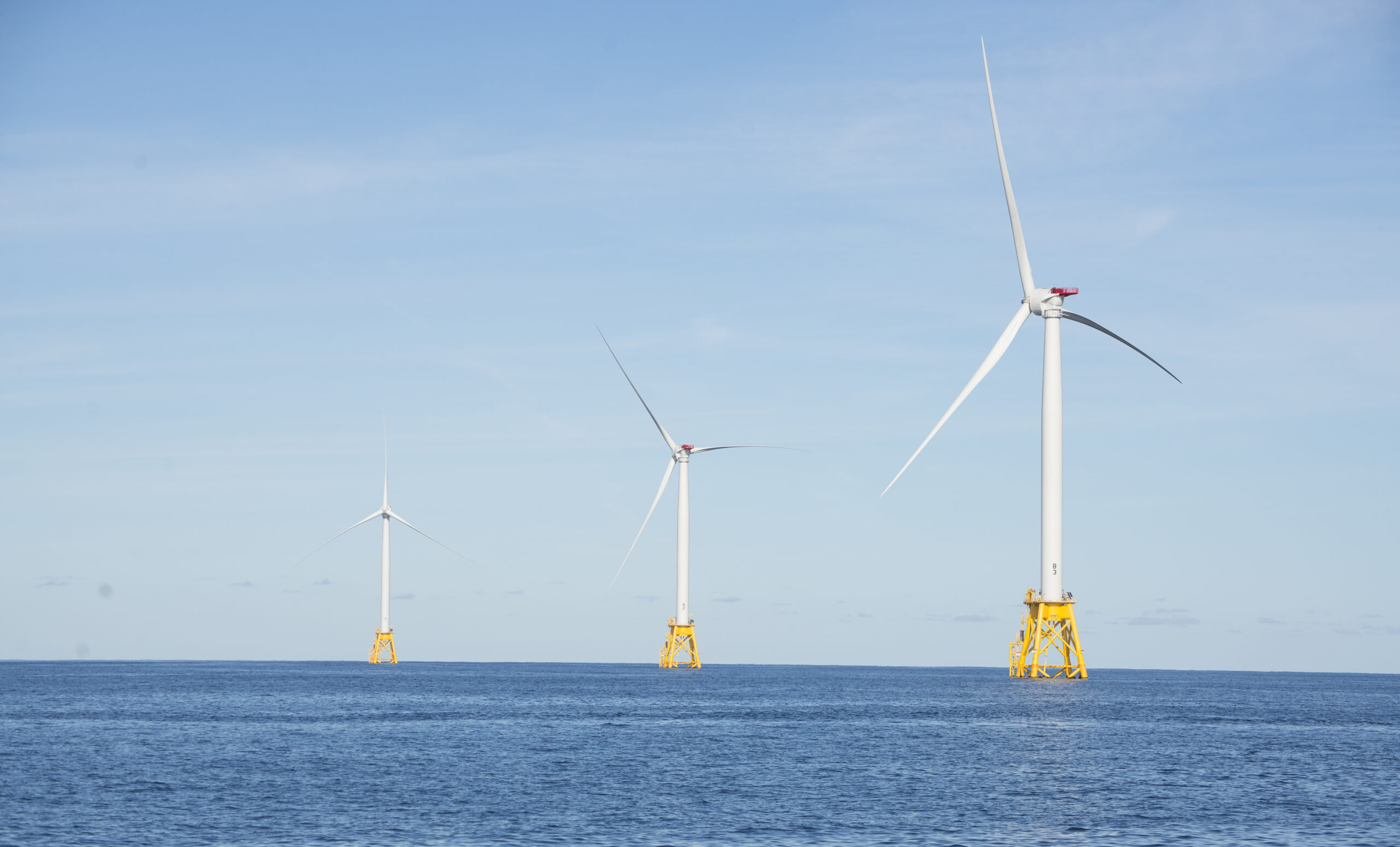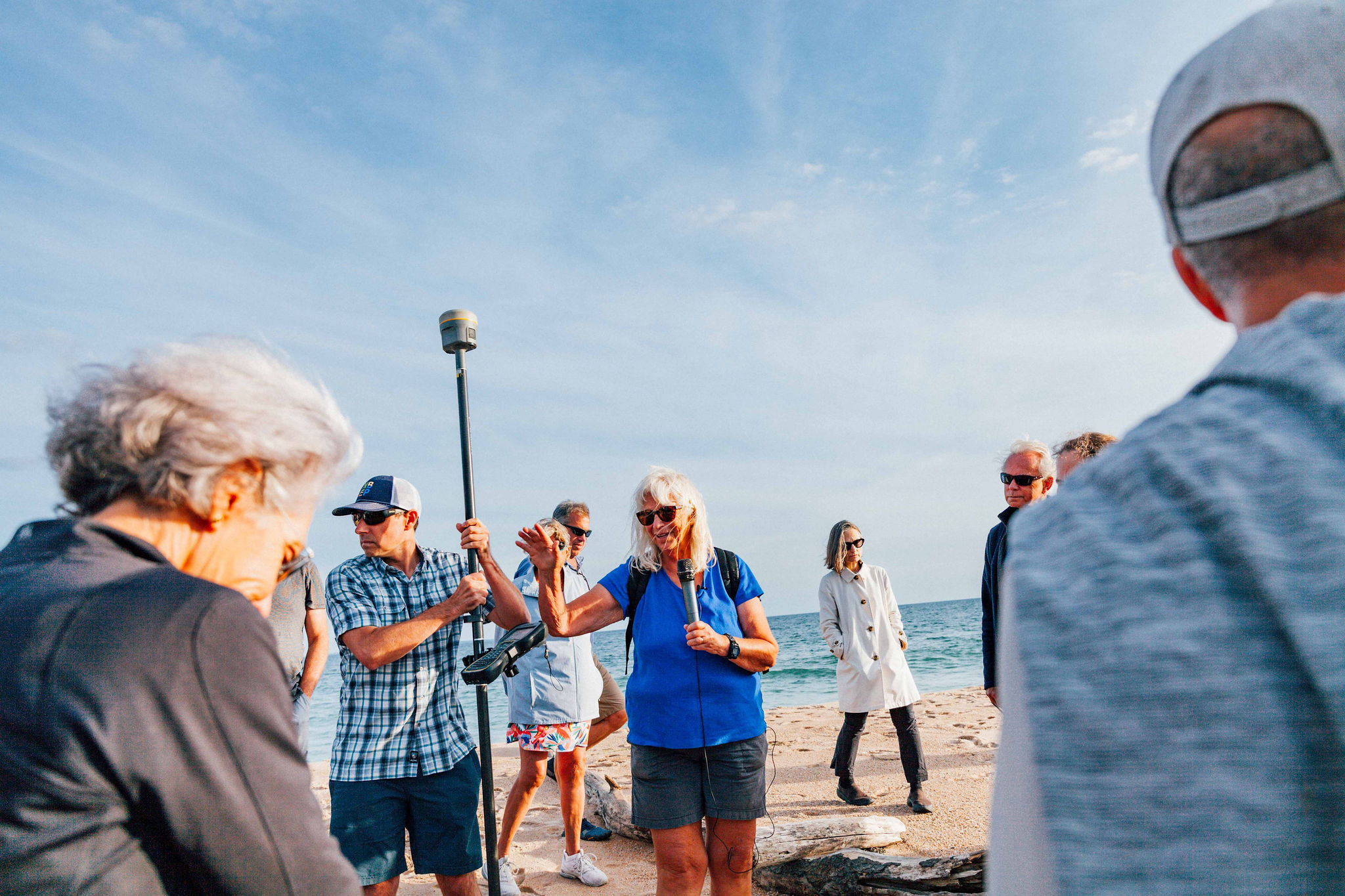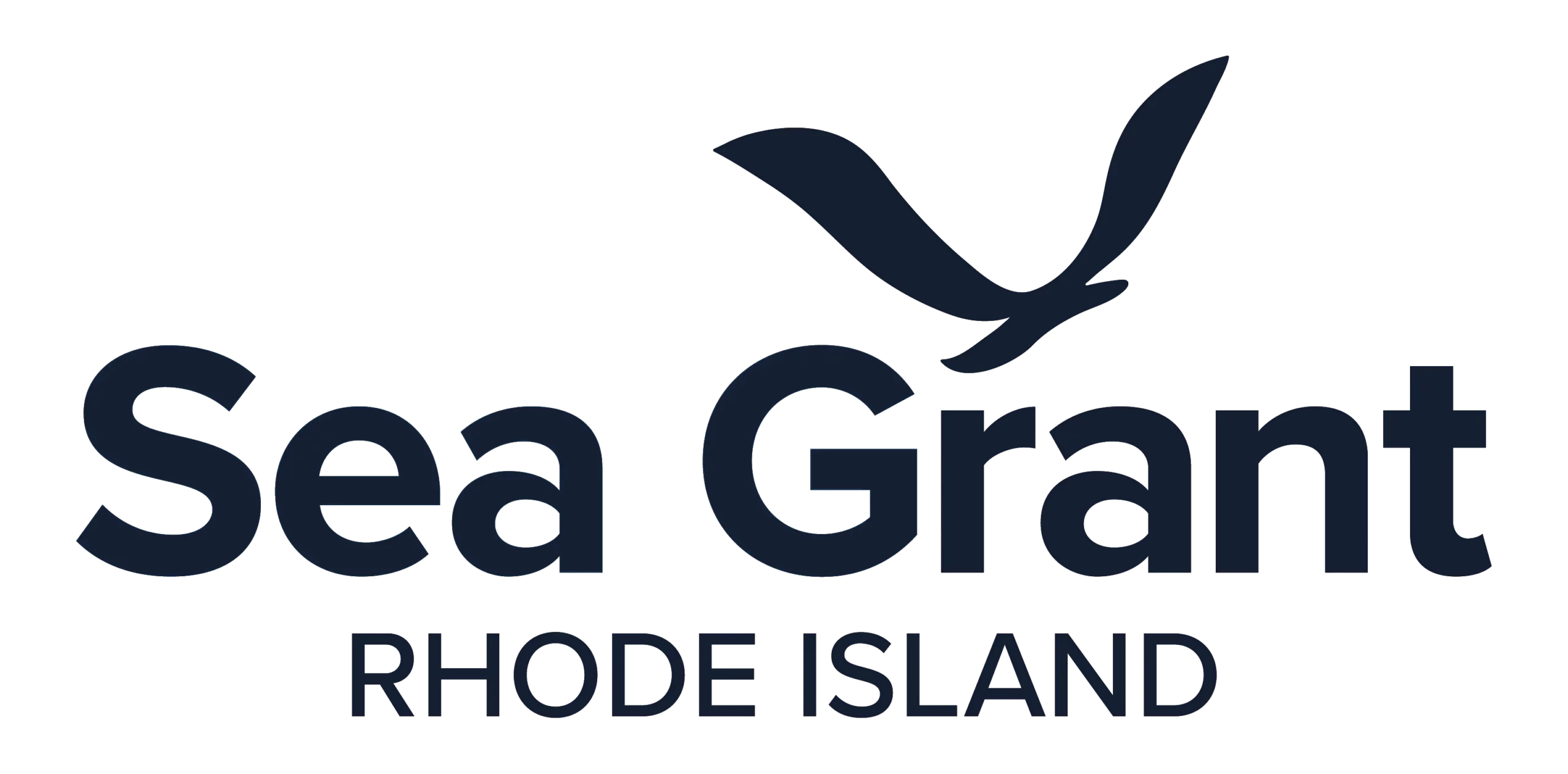Rhode Island Sea Grant (RISG) is thrilled to announce the availability of three graduate fellowship positions as part of our 2025 Community Engagement and Communications Fellowship Program. This initiative aims to support and train the next generation of coastal researchers, managers, and leaders by offering students hands-on experience addressing real-world coastal management challenges. Each fellow will collaborate with RISG-funded scientists, extension agents, and state resource management professionals to develop solutions for pressing issues in coastal and marine communities.
This half-time fellowship provides employment for the Spring and Fall 2025 semesters, during which the student is expected to work on campus at the URI Narragansett Bay Campus. The fellowship package includes half tuition for the academic year and a 10-hour-per-week stipend. The fellowship is open to URI graduate students with strong written and verbal skills. To be eligible, full-time graduate students must be between January 1 and December 31, 2025.
Fellowship opportunities for 2025 include:

Resilient Communities & Economics Fellowship
Coastal resilience is crucial for Rhode Island due to its long coastline, vulnerability to sea-level rise, and frequent extreme weather. RI faces unique challenges as a densely populated state with many residents living along the coast. This fellow will aid coastal resilience efforts by applying science to tools like flood maps and policy development at local and municipal levels.
More information
The student will assist in the coastal resilience extension team’s technical assistance that supports research, policy, GIS mapping/interactive Storymaps, decision support tools, and stakeholder engagement related to flooding and shoreline change from storms and rising seas. The student could assist in general work across multiple projects, and more specifically in the following ways:
- Support various aspects of the RI Climate Resilience Learning Network, an emerging community of practice that fosters knowledge exchange on enhancing climate community resilience against challenges. Team efforts include hosting webinars, compiling good practices for dissemination, or facilitating working group meetings.
- Assist the MyCoast participatory monitoring program, where volunteers photograph flooding and damage through data synthesis to better understand the trends. Communicate the science through written and visual products. Create outreach products for volunteers and their communities to use for educating, decision-making, and action. Learn more at mycoast.org/ri.
- Support activities to build the capacity of coastal municipalities and their residents, businesses, leaders, and decision-makers. This may include researching good practices or tools for sharing with partners, developing presentations/videos for user groups, and supporting workshops and engagement studios across the state to address adaptation options. Learn more about these initiatives on the Providing Resilience Education for Planning in RI website: prep-ri.org
- Support public outreach and engagement with local communities on coastal resilience efforts and assist in developing communication materials to support the coastal resilience program.
- Collaborate with Sea Grant extension, legal, research, and education portfolios in determining coastal community needs and opportunities.

Offshore Wind Energy Fellowship
With the rapid growth of the ocean economy, especially Offshore Wind Energy (OWE), there is an increasing need to equip coastal practitioners, including Sea Grant staff, with scientific and technical support. Our goal is to build their OWE expertise to serve stakeholders—government, private sector, communities, academia, and advocacy groups—effectively and confidently.
More information
Among the key areas of effort for the extension, team are implementing the National Sea Grant Offshore Wind Energy Liaison Initiative, providing the University of Rhode Island and the State with OWE and blue economy problem-solving support, and fostering the growth of opportunities for a diversity of students and jobseekers to potentially enter the quickly evolving blue economy and OWE workforces. This fellow will support this effort at 10 hours/week via activities that could include:
- Assistance with logistics and work surrounding the development and crafting of a needs assessment for the West Coast OWE Sea Grant practitioners.
- Developing materials and implementing tasks related to a project focused on understanding and mapping recreational fishing issues in the OWE arena locally and regionally.
- Support for the creation of the OWE podcast series to engage a broad constituency in OWE topics and issues, such as ocean viewscapes, shared use of ocean spaces, and diverse perspectives of the OWE arena.

Communications Fellowship
Rhode Island Sea Grant Communications Fellow will work with a team to cultivate a diverse, environmentally aware public engaged in lifelong learning about oceans and coasts. This will include contributing to our magazine, 41˚N, website, social media, public events, and outreach events.
More information
Rhode Island Sea Grant Communications seeks a Fellow with strong writing abilities to create brief articles for our website and social media posts featuring our funded research, outreach, education, and legal programs and promote and cover events.
The Fellow will do background reading/research, conduct interviews, and attend lectures and events to generate content for these articles. In addition, the Fellow will help organize and staff events and, depending on their skills and interests, provide photography, videography, fundraising, design, and marketing assistance. This Fellowship will provide the selected candidate with a variety of opportunities not only to learn and strengthen communications skills but also to learn about various coastal environmental and community issues and the research, education, and outreach that Rhode Island Sea Grant and partners are providing to address them.
Application and Selection Process
All applicants must complete and submit a 2025 CEC Fellowship Application, including all requirements listed below. Application packages must include (as PDF):
- Applicant information including applicant name, contact information, academic program/department, name of
major professor/graduate director and which fellowship is being applied for, - A one-page letter describing applicant interest in the fellowship, career goals and how the experience would enhance
their career objectives, - At least two (2) original writing samples,
- Resume/CV
- At least one letter of reference (can be submitted separately)
Application deadline: Friday, November 8, 2024
Following the application deadline, the Workforce Development Coordinator and RI Sea Grant staff will review applications. Strong applicants will be invited to interview with fellowship mentors and RISG staff in late November/early December 2024.
Fellowship decisions will be finalized in mid-December. The fellowship will officially begin in January 2025.
Questions? Please contact Kim Ohnemus, RISG Workforce Development Coordinator (kohnemus@uri.edu) with any questions or for help with your application.
